Posted on September 4th, 2019 by Mary Lord
 American students spend more time studying science but perform less well than their international peers. That’s just one of the fascinating comparisons in the latest OECD Education At A Glance report, which analyzes data on topics from early-childhood education to time spent instructing students.
American students spend more time studying science but perform less well than their international peers. That’s just one of the fascinating comparisons in the latest OECD Education At A Glance report, which analyzes data on topics from early-childhood education to time spent instructing students.
Read More
Filed under: K-12 Education News, Special Features, Web Resources | Comments Off on Education At A Glance 2019
Tags: early childhood education, international comparisons, OECD Education At A Glance 2019, research on education, Research on Learning, STEM education, teacher salaries, Website
Posted on May 30th, 2017 by Mary Lord
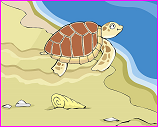 Cloud classification, coastal environments, and sea turtles and their quest to nest are among the interactive online games highlighting environmental science and stewardship on the National Oceanic and Atmospheric Administration’s Planet Arcade portal.
Cloud classification, coastal environments, and sea turtles and their quest to nest are among the interactive online games highlighting environmental science and stewardship on the National Oceanic and Atmospheric Administration’s Planet Arcade portal.
Read More
Filed under: For Teachers, K-12 Outreach Programs, Web Resources | Comments Off on NOAA’s Planet Arcade
Tags: Class Activities, Climate, coastal management, earth sciences, Environmental science, erosion, interactive games, NOAA, oceans, shore, STEM education, waterways, Weather, Web Resources, Website
Posted on February 16th, 2017 by Mary Lord
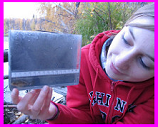 Middle school students learn that ordinary people like themselves can make meaningful contributions to science by reviewing examples of citizen science projects on Zooniverse, an interactive website. They then form “engineering teams” to brainstorm projects for their own community and design conceptual interactive websites that could organize and support them.
Middle school students learn that ordinary people like themselves can make meaningful contributions to science by reviewing examples of citizen science projects on Zooniverse, an interactive website. They then form “engineering teams” to brainstorm projects for their own community and design conceptual interactive websites that could organize and support them.
Read More
Filed under: Class Activities, Grades 6-8, Grades 6-8, Lesson Plans | Comments Off on Citizen Science
Tags: Citizen Science, Class Activities, data analysis, environment, Grades 6-8, Lesson Plan, Website
Posted on November 9th, 2015 by Mary Lord
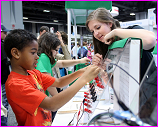 Seek inspiration or instructional tips for your STEM classes? Find out how the National Academy of Engineering’s new LinkEngineering portal can connect you with engineering experts, educators, activities, and more at a Town Hall Google Hangout November 18 from 1 to 2 pm EST.
Seek inspiration or instructional tips for your STEM classes? Find out how the National Academy of Engineering’s new LinkEngineering portal can connect you with engineering experts, educators, activities, and more at a Town Hall Google Hangout November 18 from 1 to 2 pm EST.
Read More
Filed under: For Teachers, K-12 Outreach Programs, Web Resources | Comments Off on Connect with LinkEngineering Nov 18
Tags: Curriculum, expert advice, LinkEngineering, National Academy of Engineering, Resources for Teachers, STEM teacher professional development, Videos, Web Resources, Website
Posted on August 29th, 2013 by Mary Lord
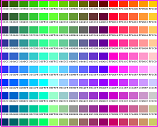 Computer science has the highest pay for new college graduates, twice the national average job growth of more than double the national average, and applications that stretch from rock music to medicine. Yet 9 in 10 schools don’t teach programming. Code.org hopes to change that with a host of free resources to get kids as young as four creating websites and apps.
Computer science has the highest pay for new college graduates, twice the national average job growth of more than double the national average, and applications that stretch from rock music to medicine. Yet 9 in 10 schools don’t teach programming. Code.org hopes to change that with a host of free resources to get kids as young as four creating websites and apps.
The answer is computer programming, and advocates from Microsoft founder Bill Gates to former president Bill Clinton are pushing to include it in the K-12 curriculum.
Far from being complicated algorithms only a geek could master, code writing can be learned by just about anyone — even four-year-olds. Code.org has compiled a host of websites, courses, and other free resources to help students hone programming skills from building websites to creating phone apps. There also are tips for using code writing and programming projects and activities in math or science classes to cover content standards.
Read More
Filed under: For Teachers, Grades 6-8, Grades 6-8, Grades 9-12, Grades 9-12, Grades K-5, Grades K-5, K-12 Outreach Programs, Lesson Plans, Special Features, Web Resources | Comments Off on Code Calling
Tags: code writing, code.org, Computer Programming, Computer Science, Curriculum, Internet Resources, Lesson Plan, Resources for Teachers, STEM education, Teacher Resources, Technology for Learning, Website
Posted on December 10th, 2012 by Mary Lord
 Seeing is believing, but what about hearing? To encourage more girls to go into STEM fields, the Women in Science, Technology, Engineering, and Mathematics has developed On The Air, an online radio series featuring stories of fascinating women scientists, engineers, and educators.
Seeing is believing, but what about hearing? To encourage more girls to go into STEM fields, the Women in Science, Technology, Engineering, and Mathematics has developed On The Air, an online radio series featuring stories of fascinating women scientists, engineers, and educators.
Read More
Filed under: Web Resources | Comments Off on Radio Days: Women in STEM
Tags: access, Internet Resources, On the Air, radio, STEM education, students with disabilities, Web Resources, webcast, Website, Women in Engineering, women in STEM
Posted on August 28th, 2011 by Mary Lord
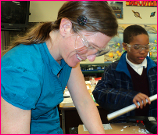 Want to incorporate engineering into your STEM curriculum but don’t know where to start? Stephanie Greer, a technology integration specialist in an inner-city Philadelphia school, faced that exact challenge last year. She shares her top tips for making the most of eGFI, which she calls her “go-to site” for inspired engineering lessons, activities, and more!
Want to incorporate engineering into your STEM curriculum but don’t know where to start? Stephanie Greer, a technology integration specialist in an inner-city Philadelphia school, faced that exact challenge last year. She shares her top tips for making the most of eGFI, which she calls her “go-to site” for inspired engineering lessons, activities, and more!
Read More
Filed under: Class Activities, Lesson Plans, Special Features | 1 Comment »
Tags: Class Activities, Curriculum, egfi tips, engineering starter kit, navigating egfi, Resources for Teachers, Teacher Resources, teachers' guide to egfi, Web Resources, Website
Posted on May 1st, 2011 by Jaimie Schock
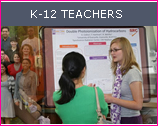 Pathways to Science supports pathways to the STEM fields. It places particular emphasis on connecting underrepresented groups with STEM programs, funding, mentoring, and resources. This website features programs such as undergraduate summer research opportunities, graduate fellowships, postdoctoral positions, and recruitment and retention materials.
Pathways to Science supports pathways to the STEM fields. It places particular emphasis on connecting underrepresented groups with STEM programs, funding, mentoring, and resources. This website features programs such as undergraduate summer research opportunities, graduate fellowships, postdoctoral positions, and recruitment and retention materials.
Read More
Filed under: For Teachers, Grades 6-8, Grades 9-12, Grades K-5, K-12 Outreach Programs, Web Resources | Comments Off on Website: Pathways to Science
Tags: Engineering outreach, Minority Group Students, Minority Group Teachers, Outreach, Scholarships and Fellowships, Student research, Web Resources, Website
Posted on April 24th, 2011 by Mary Lord
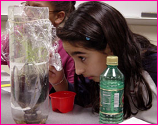 How much does your state spend on STEM education? What are the job prospects for science and engineering majors? The National Science Board’s new Web-based tool helps teachers, students, parents, and guidance counselors answer these questions and more.
How much does your state spend on STEM education? What are the job prospects for science and engineering majors? The National Science Board’s new Web-based tool helps teachers, students, parents, and guidance counselors answer these questions and more.
Read More
Filed under: K-12 Education News, Special Features, Web Resources | Comments Off on STEM Education Trends
Tags: Education Policy, Internet Resources, Web Resources, Website
 American students spend more time studying science but perform less well than their international peers. That’s just one of the fascinating comparisons in the latest OECD Education At A Glance report, which analyzes data on topics from early-childhood education to time spent instructing students.
American students spend more time studying science but perform less well than their international peers. That’s just one of the fascinating comparisons in the latest OECD Education At A Glance report, which analyzes data on topics from early-childhood education to time spent instructing students. 








 Cloud classification, coastal environments, and sea turtles and their quest to nest are among the interactive online games highlighting environmental science and stewardship on the National Oceanic and Atmospheric Administration’s Planet Arcade portal.
Cloud classification, coastal environments, and sea turtles and their quest to nest are among the interactive online games highlighting environmental science and stewardship on the National Oceanic and Atmospheric Administration’s Planet Arcade portal. Middle school students learn that ordinary people like themselves can make meaningful contributions to science by reviewing examples of citizen science projects on Zooniverse, an interactive website. They then form “engineering teams” to brainstorm projects for their own community and design conceptual interactive websites that could organize and support them.
Middle school students learn that ordinary people like themselves can make meaningful contributions to science by reviewing examples of citizen science projects on Zooniverse, an interactive website. They then form “engineering teams” to brainstorm projects for their own community and design conceptual interactive websites that could organize and support them.  Seek inspiration or instructional tips for your STEM classes? Find out how the National Academy of Engineering’s new LinkEngineering portal can connect you with engineering experts, educators, activities, and more at a Town Hall Google Hangout November 18 from 1 to 2 pm EST.
Seek inspiration or instructional tips for your STEM classes? Find out how the National Academy of Engineering’s new LinkEngineering portal can connect you with engineering experts, educators, activities, and more at a Town Hall Google Hangout November 18 from 1 to 2 pm EST. Computer science has the highest pay for new college graduates, twice the national average job growth of more than double the national average, and applications that stretch from rock music to medicine. Yet 9 in 10 schools don’t teach programming. Code.org hopes to change that with a host of free resources to get kids as young as four creating websites and apps.
Computer science has the highest pay for new college graduates, twice the national average job growth of more than double the national average, and applications that stretch from rock music to medicine. Yet 9 in 10 schools don’t teach programming. Code.org hopes to change that with a host of free resources to get kids as young as four creating websites and apps. Seeing is believing, but what about hearing? To encourage more girls to go into STEM fields, the Women in Science, Technology, Engineering, and Mathematics has developed On The Air, an online radio series featuring stories of fascinating women scientists, engineers, and educators.
Seeing is believing, but what about hearing? To encourage more girls to go into STEM fields, the Women in Science, Technology, Engineering, and Mathematics has developed On The Air, an online radio series featuring stories of fascinating women scientists, engineers, and educators. Want to incorporate engineering into your STEM curriculum but don’t know where to start? Stephanie Greer, a technology integration specialist in an inner-city Philadelphia school, faced that exact challenge last year. She shares her top tips for making the most of eGFI, which she calls her “go-to site” for inspired engineering lessons, activities, and more!
Want to incorporate engineering into your STEM curriculum but don’t know where to start? Stephanie Greer, a technology integration specialist in an inner-city Philadelphia school, faced that exact challenge last year. She shares her top tips for making the most of eGFI, which she calls her “go-to site” for inspired engineering lessons, activities, and more! Pathways to Science supports pathways to the STEM fields. It places particular emphasis on connecting underrepresented groups with STEM programs, funding, mentoring, and resources. This website features programs such as undergraduate summer research opportunities, graduate fellowships, postdoctoral positions, and recruitment and retention materials.
Pathways to Science supports pathways to the STEM fields. It places particular emphasis on connecting underrepresented groups with STEM programs, funding, mentoring, and resources. This website features programs such as undergraduate summer research opportunities, graduate fellowships, postdoctoral positions, and recruitment and retention materials. How much does your state spend on STEM education? What are the job prospects for science and engineering majors? The National Science Board’s new Web-based tool helps teachers, students, parents, and guidance counselors answer these questions and more.
How much does your state spend on STEM education? What are the job prospects for science and engineering majors? The National Science Board’s new Web-based tool helps teachers, students, parents, and guidance counselors answer these questions and more.